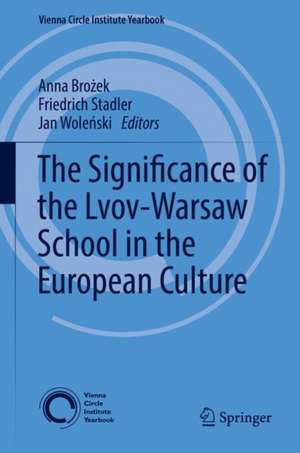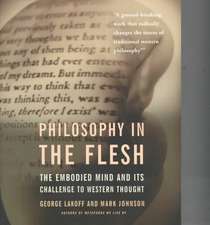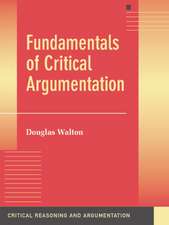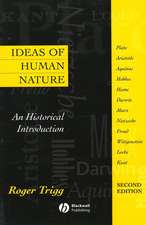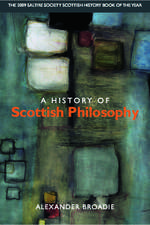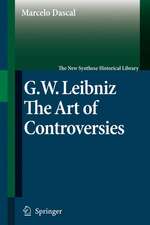The Significance of the Lvov-Warsaw School in the European Culture: Vienna Circle Institute Yearbook, cartea 21
Editat de Anna Brożek, Friedrich Stadler, Jan Woleńskien Limba Engleză Hardback – 7 aug 2017
The papers are devoted to the history and reception of the Lvov-Warsaw School, a Polish branch of analytic philosophy. They present the School’s achievements as well as its connections to other analytic groups. The contributors also show how the tradition of the School is developed contemporarily. The title will appeal to historians of analytic philosophy as well as historians of philosophy in Central Europe.
| Toate formatele și edițiile | Preț | Express |
|---|---|---|
| Paperback (1) | 730.02 lei 43-57 zile | |
| Springer International Publishing – 13 mai 2018 | 730.02 lei 43-57 zile | |
| Hardback (1) | 736.16 lei 43-57 zile | |
| Springer International Publishing – 7 aug 2017 | 736.16 lei 43-57 zile |
Din seria Vienna Circle Institute Yearbook
- 24%
 Preț: 797.66 lei
Preț: 797.66 lei - 18%
 Preț: 964.86 lei
Preț: 964.86 lei - 18%
 Preț: 954.93 lei
Preț: 954.93 lei - 15%
 Preț: 645.47 lei
Preț: 645.47 lei - 15%
 Preț: 644.30 lei
Preț: 644.30 lei - 15%
 Preț: 641.85 lei
Preț: 641.85 lei - 18%
 Preț: 948.16 lei
Preț: 948.16 lei - 15%
 Preț: 636.30 lei
Preț: 636.30 lei - 15%
 Preț: 652.49 lei
Preț: 652.49 lei - 15%
 Preț: 647.59 lei
Preț: 647.59 lei - 15%
 Preț: 644.63 lei
Preț: 644.63 lei - 18%
 Preț: 953.82 lei
Preț: 953.82 lei - 15%
 Preț: 583.78 lei
Preț: 583.78 lei - 18%
 Preț: 1027.20 lei
Preț: 1027.20 lei -
 Preț: 383.71 lei
Preț: 383.71 lei - 18%
 Preț: 788.41 lei
Preț: 788.41 lei - 18%
 Preț: 944.51 lei
Preț: 944.51 lei - 18%
 Preț: 725.43 lei
Preț: 725.43 lei - 18%
 Preț: 950.96 lei
Preț: 950.96 lei - 24%
 Preț: 760.12 lei
Preț: 760.12 lei - 15%
 Preț: 705.51 lei
Preț: 705.51 lei - 18%
 Preț: 954.14 lei
Preț: 954.14 lei - 18%
 Preț: 1391.97 lei
Preț: 1391.97 lei - 18%
 Preț: 959.19 lei
Preț: 959.19 lei - 18%
 Preț: 954.77 lei
Preț: 954.77 lei - 18%
 Preț: 955.40 lei
Preț: 955.40 lei - 18%
 Preț: 954.93 lei
Preț: 954.93 lei
Preț: 736.16 lei
Preț vechi: 897.75 lei
-18% Nou
Puncte Express: 1104
Preț estimativ în valută:
140.88€ • 146.25$ • 117.47£
140.88€ • 146.25$ • 117.47£
Carte tipărită la comandă
Livrare economică 24 martie-07 aprilie
Preluare comenzi: 021 569.72.76
Specificații
ISBN-13: 9783319528687
ISBN-10: 3319528688
Pagini: 61
Ilustrații: XI, 353 p. 4 illus.
Dimensiuni: 155 x 235 mm
Greutate: 0.69 kg
Ediția:1st ed. 2017
Editura: Springer International Publishing
Colecția Springer
Seria Vienna Circle Institute Yearbook
Locul publicării:Cham, Switzerland
ISBN-10: 3319528688
Pagini: 61
Ilustrații: XI, 353 p. 4 illus.
Dimensiuni: 155 x 235 mm
Greutate: 0.69 kg
Ediția:1st ed. 2017
Editura: Springer International Publishing
Colecția Springer
Seria Vienna Circle Institute Yearbook
Locul publicării:Cham, Switzerland
Cuprins
Chapter 1. Preface.- Part I. The Lvov-Warsaw School and Manifestations of Its Historical Importance.- Chapter 2. Logical Philosophy, Anti-Irrationalism, and Gender Equality: Three Positives of the Lvov-Warsaw Enlightenment (Simons).- Chapter 3. How to Speak About the History of Analytic Philosophy? (Woleński).- Chapter 4. The Lvov-Warsaw School as a Multicultural Phenomenon: Ukrainian Aspect (Ivanyk).- Part II. The Lvov-Warsaw School and Its Austro-German Affinities.- Chapter 5. Brentanian Motives in Kazimierz Twardowski and His Students (Woleński).- Chapter 6. Metaphysics and the Logical Analysis of ‘Nothing’ (Van der Schaar).- Chapter 7. The Brentanian Inspirations in Tadeusz Czeżowski’s Philosophy (Łukasiewicz).- Chapter 8. The Lvov-Warsaw School and Austro-German Philosophers. Two Cases: Alexius Meinong and Heinrich Scholz (Jadacki).- Part III. The Lvov-Warsaw School and Its Various Currents.- Chapter 9. From a Study of Practice to a Philosophy of Practicality: Tadeusz Kotarbiński’s Contribution to the Lvov-Warsaw School of Philosophy (Gasparski).- Chapter 10. On Tadeusz Kotarbiński’s Praxiology and Analytical Philosophy of Action (Zaręba).- Chapter 11. Cracow Circle: Theology in the Lvov-Warsaw School (Tkaczyk).- Chapter 12. The Unity of Science and Reduction of Theories From the Perspective of the Lvov-Warsaw School (Brożek).- Chapter 13. The Lvov-Warsaw School from a Bird’s Eye View (Jadacki).- Part IV. General Part: Report/Documentation.- Chapter 14. The Law of Contradiction in the Light of Recent Investigations of Bertrand Russell (Chwistek).- Chapter 15. Poznański and Wundheiler’s ‘The Concept of Truth in Physics’: The Lvov-Warsaw School Contribution to Encyclopedism (Koterski).- Chapter 16. The Concept of Truth in Physics (Poznański).
Textul de pe ultima copertă
This volume is a result of the international symposium “The Tradition of the Lvov-Warsaw School in European Culture,” which took place in Warsaw, Poland, September 2015. It collects almost all the papers presented at the symposium as well as some additional ones. The contributors include scholars from Austria, the Netherlands, Ireland, and Poland.
The papers are devoted to the history and reception of the Lvov-Warsaw School, a Polish branch of analytic philosophy. They present the School’s achievements as well as its connections to other analytic groups. The contributors also show how the tradition of the School is developed contemporarily. The title will appeal to historians of analytic philosophy as well as historians of philosophy in Central Europe.
The papers are devoted to the history and reception of the Lvov-Warsaw School, a Polish branch of analytic philosophy. They present the School’s achievements as well as its connections to other analytic groups. The contributors also show how the tradition of the School is developed contemporarily. The title will appeal to historians of analytic philosophy as well as historians of philosophy in Central Europe.
Caracteristici
Presents new dimensions of the output of the Lvov-Warsaw School Compares the Lvov-Warsaw School to other centers of analytic philosophy Shows how the tradition of the School is developed contemporarily Details the role of the Lvov-Warsaw School in European Culture
